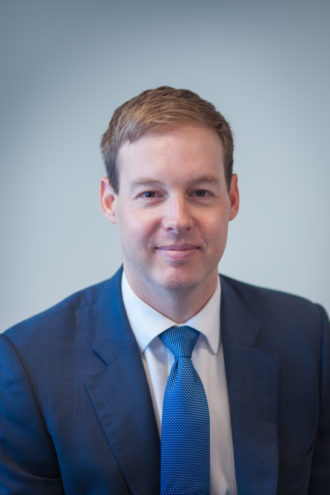Stories provide a window into the past. While often embellished over time—deals get bigger, accomplishments grander, and personalities more outlandish—an appreciation of those who came before has been key to unlocking creativity and success in Republic Property Group’s projects over the last 50 years.
One of the best collection of stories lives in “The Autobiography of William Zeckendorf.” A real estate titan of the mid-20th century and the less-talked-about half of an architect-developer partnership with I.M. Pei, Zeckendorf transformed skylines and landscapes from coast to coast and relocated the capital of the world (the United Nations headquarters) to New York City.
The autobiography itself is a story of lore: Zeckendorf agreed to write it to ensure the publishing company would extend its lease in one of his buildings. Printed in 1970 and aptly subtitled “The autobiography of the man who played a real-life game of Monopoly and won the largest real estate empire in history,” the book expels a brutal honesty that is needed in real estate. Familiar lessons including “time kills deals” and “the devil’s in the details” are featured prominently, but it is the richer insights woven into the narrative that we can all draw inspiration from today.

Purpose and care.
Zeckendorf had a talent for making money at an early age, but he found true purpose in creating impactful places. The seemingly impossible drove him, and he imagined how people would live, work, and play long before this was a popular tagline. What we do today as developers alters cities for generations. As an industry, the responsibility is ours to care for the places we create and the people who experience them. The added benefit is this approach often creates more value.
Embrace creativity.
No one can argue Zeckendorf possessed incredible instincts, an astute understanding of the world, and serious financial acumen. His true skill, however, was the ability to use his talents to motivate disparate groups of people in creative problem-solving, whether through financial structures and negotiations, design, presentations or leadership. Creativity is one of your most valuable assets and applies to every aspect of life. Embrace it.
“Using mirrors.”
When Zeckendorf came up with a new approach that generated success, he repeated it. Often a solution for one project can be replicated, and every time he came up with a new way to set himself apart in the near term, he applied it everywhere he could to propel his career.
Find your I.M. Pei.
Before rising to “starchitect” status and winning a Pritzker Architecture Prize, Pei was a graduate student at Harvard, where Zeckendorf discovered him. Pei honed his vision and talents with Zeckendorf for 12 years before starting his own firm and making a lasting mark on the world (and our city, including the design of Dallas City Hall and the Meyerson Symphony Center). Zeckendorf always preached heightened architecture as essential to unique placemaking—something we take to heart in each community or neighborhood we develop throughout North Texas. The broader lesson: find and work with talented people you trust, and who care as much as you do, then let them take you places. Also, if you can find an I.M. Pei in his early thirties, you can probably save a lot of money!
Think long term.
Zeckendorf didn’t trade for every last dollar. If a price was fair and enabled him to accomplish his plan, he accepted it. Late in life, Zeckendorf spread himself too thin and took on too much debt (another lesson), but he always aimed for greatness. He truly believed negotiating too hard would cost him more deals than not and leave a bad taste in the mouth of others, negating opportunity for future business.
Inspiration is everywhere.
Many of Zeckendorf’s best ideas originated outside of work. He looked to the world around him for inspiration to apply to his business. His philosophy is more relevant today than ever. As developers, we must observe, seek, and learn from the disruption occurring across every industry in the world.
The lessons of Zeckendorf are timeless. Learn from the past and apply persistence, creativity and genuine care for what you do, and your projects will flourish.
You can buy “The Autobiography of William Zeckendorf,” or reach out to me and I’d be happy to lend you my copy.
Jake Wagner is Co-CEO of Republic Property Group, which is developing communities such as Celina’s Light Farms, Fort Worth’s Walsh, and Plano’s Villas at Legacy West.






